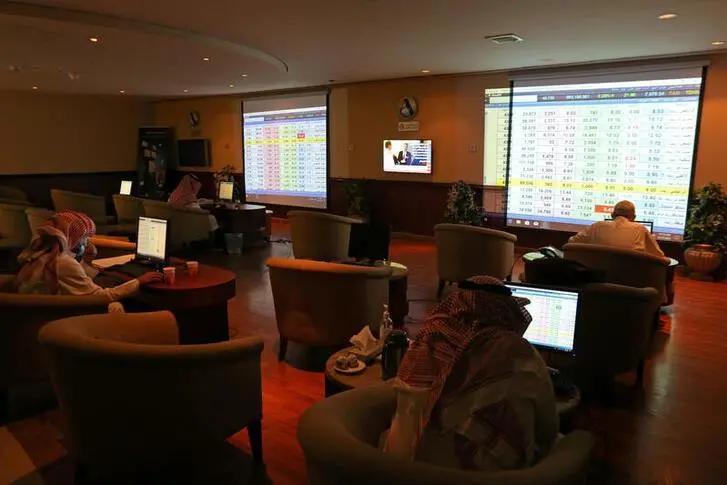PHOTO
Major Gulf bourses rebounded in early trade on Wednesday, amid rising oil prices and ahead of keenly awaited U.S. inflation data that will offer a guide to how aggressively the Federal Reserve will raise rates.
Saudi Arabia's benchmark index, which saw its biggest intraday fall in over five months in the previous session, gained 0.4%, with petrochemical maker Saudi Basic Industries Corp advancing 2.5%.
Saudi banks' standalone credit profiles will be supported by high oil prices, rising interest rates and strong credit growth in 2022-2023, Fitch Ratings said on Tuesday.
The ratings agency expects higher interest rates to underpin profitability and capital generation, and banks to maintain strong capital ratios.
Among other gainers, the kingdom's largest lender Saudi National Bank climbed 1.4%.
Crude prices, a key catalyst for the Gulf's financial markets, rebounded after plunging nearly 10% over the previous two sessions, buoyed by supply concerns as the European Union works on gaining support for a ban on Russian oil and as major producers warned they may struggle to fill the gap when demand improves.
Dubai's main share index edged 0.2% higher, helped by a 1.1% rise in top lender Emirates NBD and a 1.2% gain in Dubai Investments.
In Abu Dhabi, the index added 0.4%, led by a 1.3% increase in telecoms firm Etisalat.
The United Arab Emirates will introduce a form of unemployment insurance, the cabinet said on Monday, the latest reform by the Gulf country as it strives to attract talent and investment amid increasing regional economic competition.
Insured workers would receive some money for a limited time period if made unemployed, UAE Prime Minister and Vice-President Sheikh Mohammed bin Rashid al-Maktoum, who is also the ruler of trade hub Dubai, said on Twitter, citing a cabinet decision.
The Qatari benchmark rose 0.5%, on course to end five sessions of gains, with Qatar Aluminium putting on 2.1%.
(Reporting by Ateeq Shariff in Bengaluru; Editing by Krishna Chandra Eluri)




















